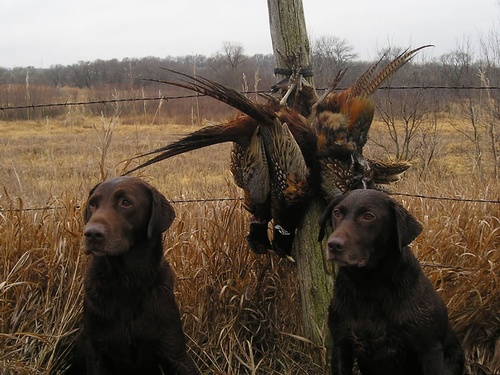
Why Don't We Hunt Anymore?
The decline of hunting in North America has limited our relationship to the food we eat—and eliminated a crucial rural tradition.
My father learned to hunt from his father, who died several years ago at the age of ninety. He hurt his back the winter before shoveling snow off his roof. My grandfather raised his family in northern Alberta in the forties and fifties. It sounded like his only enjoyable hours, as a young man, were in the bush hunting deer and moose. He told a great story about being gored by an mule deer he thought he had killed, and being chased up a tree, hemorrhaging from his thigh. His rifle, a .300 Savage, lay for years in one corner of a closet in his basement, and I remember looking at it as a boy when our family visited, secretly holding it and working the bolt, feeling its unexpected weight in my arms.
A few years ago, for reasons I don’t really understand, my grandfather gave my father his old rifle. It was a symbolic rather than practical gesture—my father hasn’t fired a rifle in years. He stopped hunting as young man, as I did. My grandfather stopped in his sixties. It’s the same story across the prairie. The number of duck hunting licenses falls precipitously every year; Ducks Unlimited is worried that its sponsor base is shrinking so fast they will have difficulty ensuring waterfowl populations in years to come.
Men have stopped hunting for the same reason they don’t smoke anymore: it’s ugly. There are debates about lung cancer and cruelty to animals but the same arguments existed thirty years ago when there was smoking in movie theatres and the autumn hills rang with gunfire. These things are ugly and we see that now in a way we did not. And if we didn’t see them as ugly we’d still be tramping through Marlboro country and keeping an eye out for antelope.
I don’t hunt, and haven’t since I lived in rural Manitoba as a boy. Then, I spent a large portion of my adolescence tramping through pastures and abandoned homesteads looking for prairie chicken. The birds were never in much danger; my father and I marveled at my nearly total inability to hit anything I was aiming at with my shotgun. He never carried a shotgun himself, but accompanied me because I insisted he teach me how to shoot birds. He acquiesced to try but, to his relief—and, presumably, that of the birds—he never really succeeded. We were nearly always left listening to the echoes of my shotgun rolling through the field as the birds made their thumping escape.
The last time I remember hunting was one glorious autumn afternoon when I was a student at the University of Winnipeg; I was a writer for the student newspaper and I remember having a coffee with the art director. He had grown up in a small town in northern Manitoba and we confessed to one another our teenage avocations. Minutes later we were driving out of town to my parents’ house, where we picked up shotguns and ammunition. We bought licenses in a gas station in town and headed out to the Red River delta. The land was the dull gold of old rope and the trees shone in the cool dimming sun as we walked the fields. His competence seemed infectious and we both shot several grouse.
The next day, at university, one of us mentioned to our colleagues on the paper how we had spent the previous afternoon. The looks from our friends had previously been reserved for apartheid apologists. I’ve not fired a shotgun since. I ate the grouse shamefully and alone in my apartment several days later and even now I can taste the birds, falling apart in my mouth with a flavour more complicated than any Butterball could ever have.
Pick up Issue 35 of Maisonneuve for Kevin Patterson's feature on diseases of affluence.
Related on maisonneuve.org:
—Foie Gras Wars
—The Blue Heron Apartments
—Tips for Becoming a Better Smoker
Follow Maisonneuve on Twitter — Join Maisonneuve on Facebook





